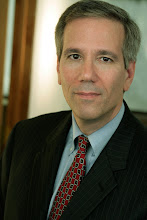In beginning Walden, Henry David Thoreau writes, "What is the nature of the luxury which enervates and destroys nations?"
A great word, enervate. It means the opposite of what it sounds like. It means: deplete.
What fails for Thoreau is the flaccidity of thought in his world. Once, for him, it meant that: "To be a philosopher is not merely to have subtle thoughts, nor even to found a school, but so to love wisdom as to live according to its dictates, a life of simplicity, independence, magnanimity, and trust. It is to solve some of the problems of life, not only theoretically, but practically."
That same flaccidity of thought is what affects current consumer product thinking about innovation. Every CPG company worth its salt or soap or detergent or food or cosmetic touts its Innovation Initiatives.
Thousands of employees are marched through innovation processes and told they too possesses the innovative capabilities that led Edison to invent the light bulb or DaVinci to codify his many inventions or took Franklin out into a rainstorm of brilliance with a kite and a key.
What flattery. What brilliant chest-beating. But now here's a true innovator's dilemma. No, not what Prof. Christensen described as the pressure for continual innovation. This innovation dilemma is more insidious. It is enervating because it really depletes the ability and the desire and the realization of true innovation. It pays lip service to progress and only results in incremental activities.
Here is how Thoreau characterized the innovation processes used by so many companies today: "The mass of men lead lives of quiet desperation. What is called resignation is confirmed desperation. From the desperate city you go into the desperate country, and have to console yourself with the bravery of minks and muskrats. A stereotyped but unconscious despair is concealed even under what are called the games and amusements of mankind. There is no play in them, for this comes after work. But it is a characteristic of wisdom not to do desperate things."
In all too many instances, the results of these innovations are, in reality, merely line extensions of existing brands or services. Nothing truly novel. But gosh it really feels good to sit for hours with colleagues, playing games, free-associating and dreaming up the Simple Pleasures of Tide detergent.
Now Vanilla & Lavender Scented Tide laundry detergent probably sounded novel in that innovation session in Cincinnati. But Europeans have putting those scents in their pockets ever since they wanted to hide the fact that they were suffering from Plague. (Remember the Ring Around A-Rosy rhyme? What do you think those pockets full of posies were for?)
No, the real innovation was the discovery of Tide itself and synthetic laundry detergent in 1946 when P&G scientists added sodium tripolyphosphate. We end 60 years later with a scented line extension.
So, for beginning the new year, let's make a promise. No more innovation, if innovation only means progress by increments. Let's try and make this year and every year, a leap year, wherein we make "a sudden lively movement" that means real progress and real growth.
Thursday, December 28, 2006
Subscribe to:
Post Comments (Atom)

No comments:
Post a Comment